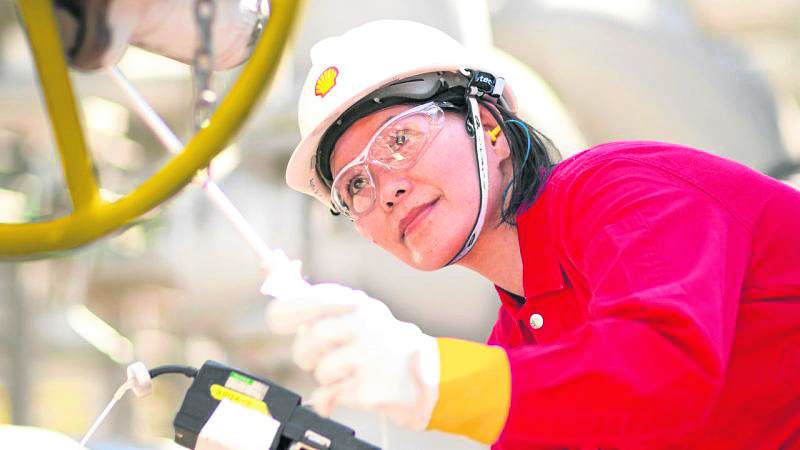
Oil and gas giant Shell said yesterday it was tackling a big gender imbalance in its UK workforce but making progress.
New figures from the company show how much there is to do, with men working for the firm in the UK still getting paid 22.2% more than women on average.
Shell said this was due to there being fewer women in senior leadership positions, and also fewer in technical or trading roles which attract higher pay.
Sinead Lynch, chairwoman of Shell UK, said: “Equal pay ensures men and women are paid equally for work of equal value.
“We are confident we have equal pay. However, we do have a gender pay gap. Across all our employees in the UK, that pay gap is 22.2%.”
Shell said the figure also reflected “societal norms”, adding: “Globally, women represent around one fifth of employees in the oil and gas sector.
“In the UK, only 25% of all graduates in science, technology, engineering and mathematics (Stem) are women, and in engineering and technology this figure is just 14%.”
The firm said it was making inroads, however, as between 2005 and 2017 the percentage of women in its senior management roles in the UK had risen from 12% to 26.8%, while 47% of graduate positions were now held by women.
Chief human resources and corporate officer Ronan Cassidy said: “The publication of the UK data provides a good opportunity to take stock, and a good reminder of why it is important to maintain the momentum of efforts internally and externally and keep focus on the issue.
“Our drive to gender balance started years ago. Are we where we aspire to be? No.
“But we should recognise the significant progress we have made, especially the marked change in gender balance at recruitment and the increase in senior leadership representation, and draw confidence from that for the future in driving gender representation towards critical mass.
“The executive committee and I remain passionately committed to improving gender balance.”
Shell, which has a 6,000-strong UK workforce that is 67% male, admitted there was still “some way to go”, adding: “We know it will take time and we will continue to tackle the root causes of imbalance.
“This includes sponsoring and engaging in Stem programmes for girls, working to eliminate any unconscious bias in our systems, processes and policies and continuing to foster a culture of inclusion at every level.”
Official figures show the UK’s overall gender pay gap, based on median hourly earnings for full-time employees, fell to
9.1% this year, from 9.4% in 2016.
But for both full and part-time workers the figure rose to 18.4%, from 18.2% previously.
Prime Minister Theresa May recently called on firms to help more women reach middle management and also offer return-to-work schemes, publish gender pay gap data and make flexible working a reality for all employees by advertising jobs as flexible unless there are solid business reasons not to.
